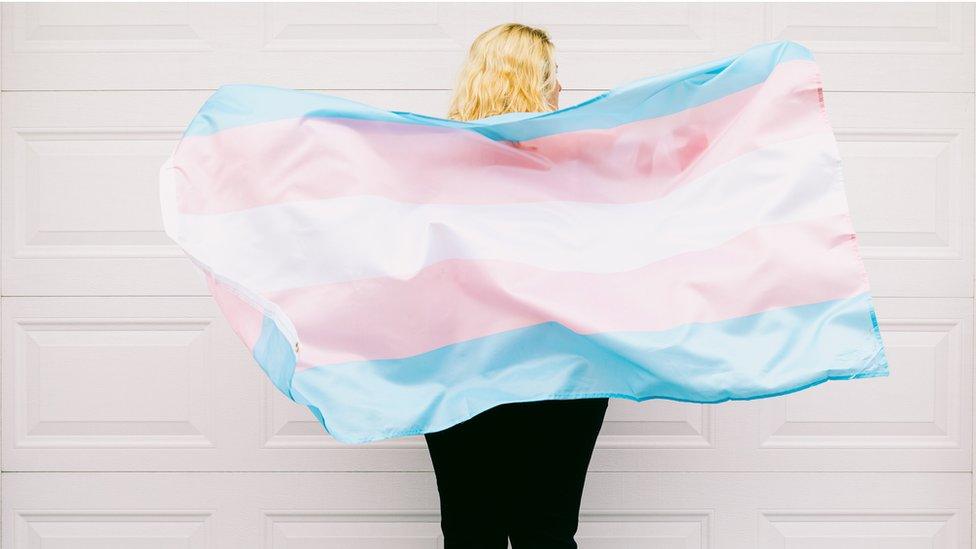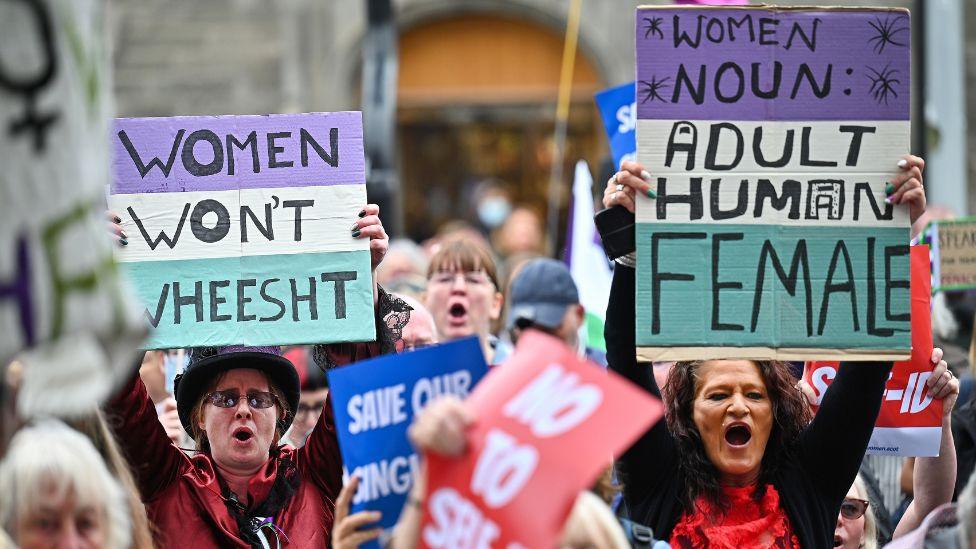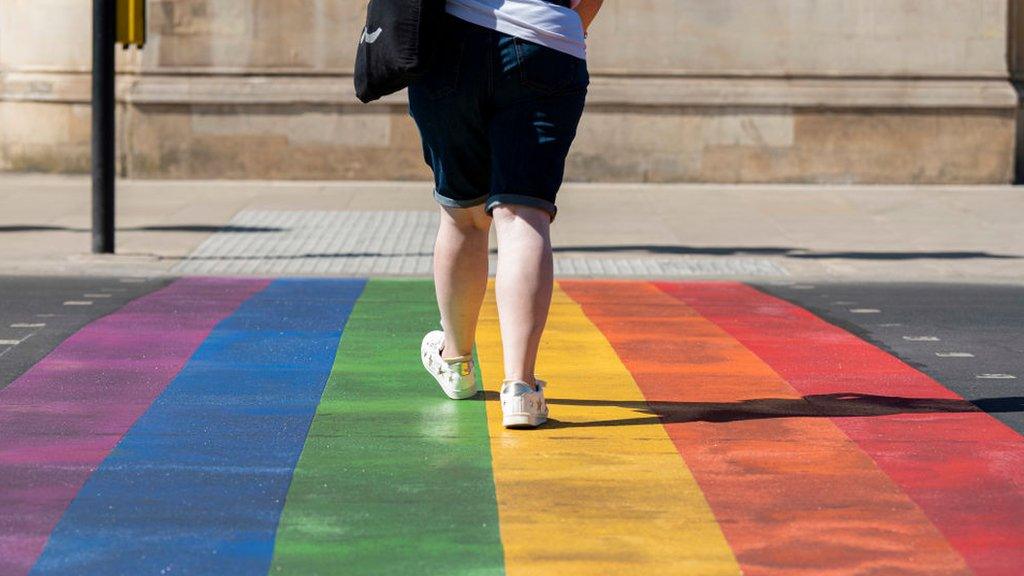Gender recognition law reform 'positive for transgender community'
- Published

Reform of gender recognition laws would have a "significant positive impact" for NI's transgender community, a Stormont report has found.
The research was commissioned in May 2021 by Conor Murphy when he was finance minister.
A group at Queen's University Belfast conducted the review of NI's current legislation.
It has now been published by the Department of Finance, external and makes a series of recommendations.
The Gender Recognition Act (GRA) has been used in Northern Ireland since 2005 to allow people to change their legal gender.
At present, people apply to a UK gender recognition panel, external and, typically, must present a diagnosis of gender dysphoria.
Applicants need to be at least 18 years old and provide two medical reports, one from a specialist detailing their diagnosis and another listing any treatment or surgery they may have had to change their sexual characteristics.
They also must prove they have lived full-time in their acquired gender for at least two years.
This could involve showing they have used a different name in official documents, or changed their gender on their driving licence or passport - and swear an oath that they intend to continue for the rest of their lives.
The report states that the available data shows that in Northern Ireland, 92 births have been re-registered following the issue of a Gender Recognition Certificate (GRC) since 2005.
The research adds: "While this number is not large, it may not indicate low interest in the application but, primarily, a reluctance to apply given difficulties."
It also says that transgender people who responded to the research who had gone through the GRC process said it was "long, complicated, dehumanising, costly and exclusionary".
In Scotland, legislation to make it easier for people to legally change their gender, also referred to as a "self-declaration" system, is going through the devolved parliament in Holyrood.
Its plan would see applications handled by the Registrar General for Scotland, rather than the UK panel.
No diagnosis or medical reports would be required and the period in which applicants need to have lived in their acquired gender would be cut to three months.
One of the most controversial proposals is to lower the minimum age that someone can apply from 18 to 16 - although an amendment to the bill that has been backed by the government means that 16 and 17-year-olds would need to have lived as their acquired gender for six months rather than three.
The Republic of Ireland made similar changes in 2015 and had granted an average of 115 applications per year up to 2020, external.
Services 'severely lacking'
The Department of Finance's report also described services for people seeking to change their gender as "severely lacking".
"There is one gender identity clinic which is located in Belfast and for which there are long waiting times to access the service."
The team from Queen's University conducted several focus groups and surveys as part of its research into the current process in Northern Ireland.
It recommended that any policy change should take into account "the physical and mental health consequences of undergoing the gender recognition process, with the aim of supporting applicants to navigate the process safely".
It added, however, that women's safety has "emerged as a strong argument against reform and should be taken into account" when considering a policy change.
The issue has become contentious, with some campaigners saying that allowing anyone to "self-identify" as a woman could impact on the rights women have fought for decades to secure, and which are themselves enshrined in equalities law.

Some campaigners in Scotland have raised concerns about the gender recognition reforms
There are also concerns about access to women-only spaces and services, including hospital wards and refuges.
The report concludes that the level of public debate about gender recognition is "sometimes causing harm to the transgender community".
It adds that: "Whereas a potential reform of the GRA is perceived as threatening to a part of the community, it would have a significant positive impact for the transgender community.
"Our analysis shows that although the potential harm is unlikely to be substantial, change would need to be carefully enacted and communicated to minimise concerns and harm on both sides."
Without a functioning government at Stormont, there are no ministers in place to consider the report and decide whether to bring forward legislation to make changes to current policy.
- Published16 May 2024

- Published23 September 2020

- Published21 November 2018

- Published11 September 2018
